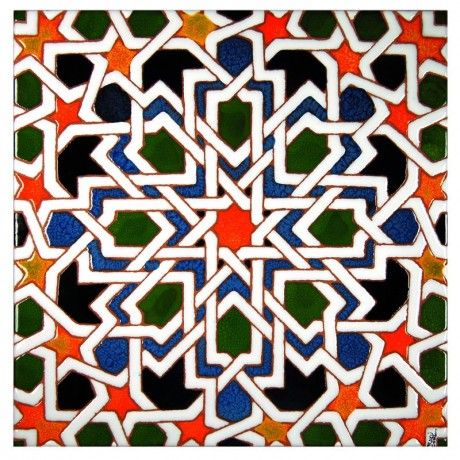CECC cordially invites all those interested to a discussion on an ongoing research project: The Issue of Islamophobia in Portugal. The debate will take place next Thursday, 9 June, from 2.30 p.m. to 4.30 p.m., in a hybrid format and in English:
- Zoom: https://videoconf-colibri.zoom.us/my/cecc2.ucp
- UCP: Sala de Exposições (Library Building)

This event is part of a transnational research project – entitled Media and Scholarly Islamophobia: a transnational study of discourses and their impact, directed by the anthropologist Abdelwahed Mekki-Berrada, from the University of Laval, in Québec-Canada – which questions the notion of ‘Islamophobia’ and analyses its discursive manifestations in French-speaking countries (France, Belgium, Switzerland, Canada) and in the Iberian Peninsula (Portugal and Spain).
The ongoing research is being developed in Portugal by a Communication Studies team of CECC-Research Centre for Communication and Culture, Universidade Católica Portuguesa, and by a team of anthropologists from CRIA-Centro em Rede de Investigação em Antropologia, NOVA University of Lisbon, coordinated, respectively, by Camila Arêas and José Mapril.
During this event, the main results of the first stage of the study on Islamophobia in the field of Portuguese media will be presented. These are the product of a discursive analysis of the main national newspapers. Since today the concept of ‘Islamophobia’ is a loaded term that has become the subject of controversy in the media and in the political arena throughout Europe, the purpose is to observe how this notion is at the centre of discursive disputes between actors who attempt to define it in accordance with their specific positions, ideas, and interests. The study proposes to understand the notion of ‘Islamophobia’ as an ‘object of discourse’, both a product and a producer of social reality.
The issues addressed in the ongoing project in Portugal revolve around two complementary approaches. The first, in the area of Communication Studies, consists in an analysis of the content and discriminatory and/or stigmatising discourses published in the main national newspapers over the last ten years. The second approach, in the area of Anthropology, seeks to understand the dynamic interactions between the reception by and the subjective experience of Muslim actors regarding discriminatory or stigmatising media discourses in relation to Islam.
From the complementary analysis of media and ethnographic data, this project seeks to provide a better understanding of the mechanisms and multiple manifestations of Islamophobia, which remains a current social reality at a local and global level.
Speakers
Abdelwahed Mekki-Berrada is a Professor at Laval University, and a specialist in the Anthropology of Islam and the Anthropology of Mental Health. His work deals with the relationship between the security paradigm of States and the mental health of migrants with a precarious status. His work on Islam explores, on the one hand, the issue of Islamophobia from the perspective of violence and radicalisation and, on the other hand, Muslim spirituality as a technology of self that contributes to the emergence of subjects-actors.
Camila Arêas is a researcher at CECC, Universidade Católica Portuguesa, and a Full Professor of Communication Studies at the University of Reunion Island, in France. A specialist in Media Semiotics, her work is conducted in the field of Media and Religion, exploring issues such as religious communication, the mediatisation of religion, and the performativity of discourses and of objects that make up the materiality of belief.
José Mapril completed his PhD in Anthropology at the Institute of Social Sciences, University of Lisbon, with research on transnationalism and Islam among the Bangladeshi community in Lisbon. He is currently an Assistant Professor at the Anthropology Department of the Faculty of Social and Human Sciences at NOVA University of Lisbon and an integrated researcher at CRIA NOVA. His research interests include: transnationalities, migrations, subjectivities, cultural citizenship, Islam(s) and Muslims, Islamophobia and secularism(s). He has addressed these topics in ethnographic studies focused on different contexts, such as Portugal, Bangladesh and the United Kingdom.
Alfredo Brant is a photographer and an artist. He is currently undertaking a PhD in the Culture Studies programme at Universidade Católica Portuguesa. He is conducting research in the fields of Visual Culture and Visual Literacy, where he explores the construction of visual narratives and the relationship between word and image.
Helena Ventura holds a Master’s degree in Communication Sciences, specialising in Media and Journalism, from the Faculty of Human Sciences, Universidade Católica Portuguesa, and an undergraduate degree in Sociology from ISCTE. She was the recipient of a scholarship from Fundação para a Ciência e a Tecnologia. She has worked as Media and Communications Officer and Research Assistant at CECC-Research Centre for Communication and Culture, Universidade Católica Portuguesa, and took part in research projects associated with this Centre.
Teresa Costa holds a Master’s degree in Anthropology from ISCTE. Her thesis focused on the trajectories and migratory experiences of Guineans in Portugal. She has worked as a researcher on national and international projects, such as ‘Heriligion’, funded by the international programme Hera-Uses of the Past, and ‘Family relationships of immigrants in dispute’, funded by the Fundação para a Ciência e a Tecnologia.



